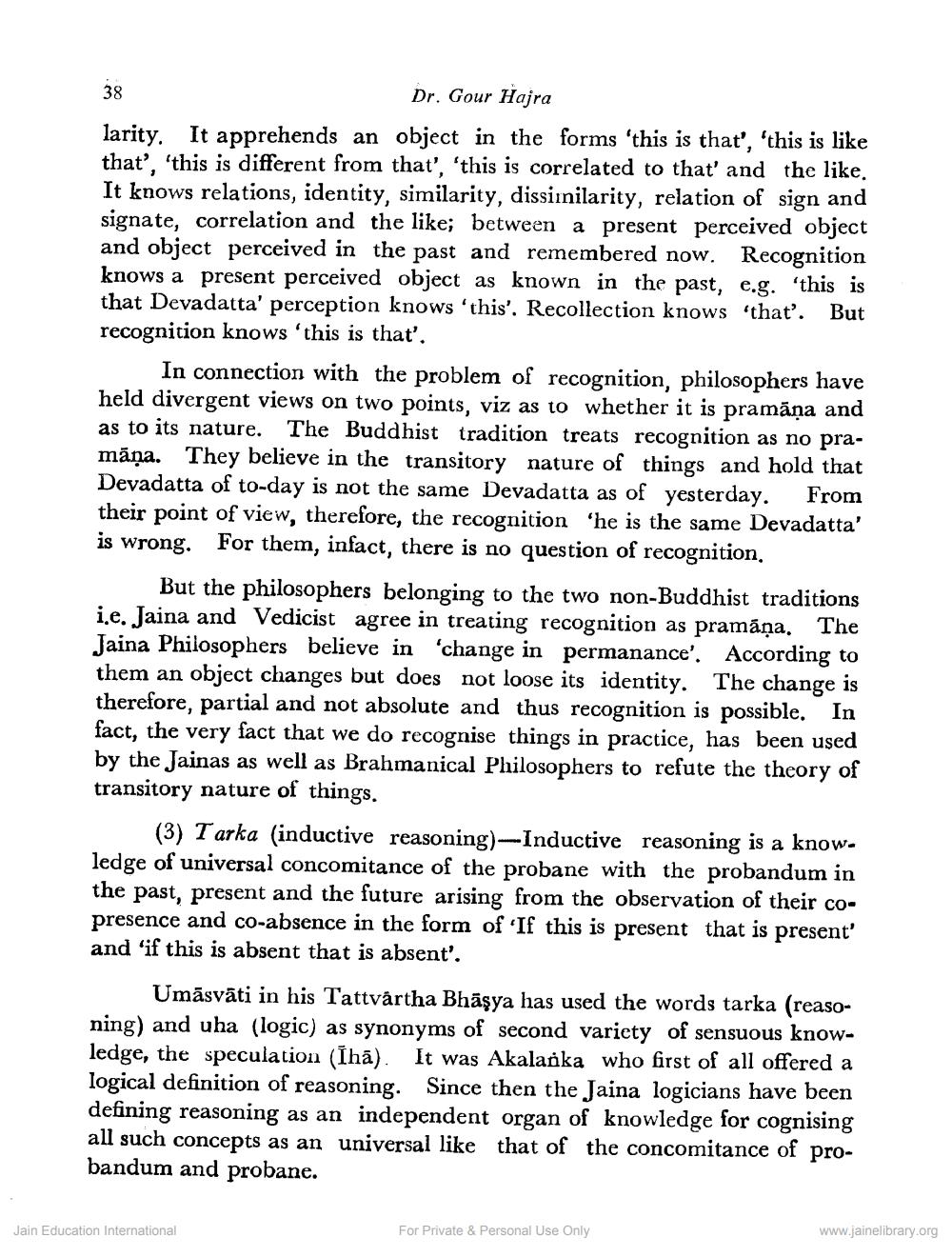Book Title: Jaina Theory of Paroksha Jnana Author(s): Goura Hajra Publisher: USA Federation of JAINA View full book textPage 3
________________ Dr. Gour Hajra larity. It apprehends an object in the forms 'this is that', 'this is like that', 'this is different from that', 'this is correlated to that and the like. It knows relations, identity, similarity, dissiinilarity, relation of sign and signate, correlation and the like; between a present perceived object and object perceived in the past and remembered now. Recognition knows a present perceived object as known in the past, e.g. 'this is that Devadatta' perception knows 'this'. Recollection knows that. But recognition knows this is that'. In connection with the problem of recognition, philosophers have held divergent views on two points, viz as to whether it is pramāņa and as to its nature. The Buddhist tradition treats recognition as no pramāna. They believe in the transitory nature of things and hold that Devadatta of to-day is not the same Devadatta as of yesterday. From their point of view, therefore, the recognition 'he is the same Devadatta' is wrong. For them, infact, there is no question of recognition. But the philosophers belonging to the two non-Buddhist traditions i.e. Jaina and Vedicist agree in treating recognition as pramāņa. The Jaina Philosophers believe in 'change in permanance'. According to them an object changes but does not loose its identity. The change is ore, partial and not absolute and thus recognition is possible. In fact, the very fact that we do recognise things in practice, has been used by the Jainas as well as Brahmanical Philosophers to refute the theory of transitory nature of things. (3) T arka (inductive reasoning)-Inductive reasoning is a know. ledge of universal concomitance of the probane with the probandum in the past, present and the future arising from the observation of their copresence and co-absence in the form of 'If this is present that is present and 'if this is absent that is absent'. Umāsvāti in his Tattvårtha Bhāşya has used the words tarka (reasoning) and uha (logic) as synonyms of second variety of sensuous knowledge, the speculation (Ihā). It was Akalarka who first of all offered a logical definition of reasoning. Since then the Jaina logicians have been defining reasoning as an independent organ of knowledge for cognising all such concepts as an universal like that of the concomitance of probandum and probane. www.jainelibrary.org For Private & Personal Use Only Jain Education InternationalPage Navigation
1 2 3 4 5 6 7
